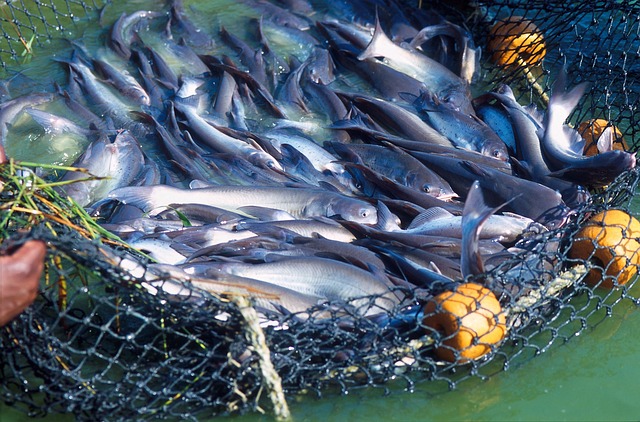June 30, 2017
Dutch pure-play, sustainable aquaculture investment firm, Aqua-Spark, announced the launch of a $15 million Africa-focused aquaculture investment fund in Cape Town on June 27.
With backing secured from cornerstone investor Msingi – an East African investment initiative founded by UK billionaire Lord David Sainsbury to invest in high-growth potential East African businesses, including agribusinesses – the fund plans to invest in all aspects of the farm production of tilapia and catfish.
Msingi (which is Swahili for ‘foundation’), is managed by the Gatsby Foundation, which in 2011 partnered to launch the agriculturally-focused African Agricultural Capital Fund (AACF) private equity fund. Other investors in the fund, which is managed by Uganda-based Pearl Capital Partners, include the Rockefeller Foundation; Senior debt from J.P. Morgan, and USAID.
“We have worked in Africa since 1985, with the overall objective of creating jobs and improving incomes,” Sainsbury told Forbes in 2014. “With the setting up of Msingi, we are confirming our commitment to [achieving] sustainable industrial development through a number of ambitious sector development programmes [sic].”
With an ultimate goal of creating a “thriving sub-Saharan aquaculture sector”, FishUpdate reports that Aqua-Spark co-founders Amy Novogratz and Mike Velings are actively seeking additional investors for the fund, which should be active within the next 12 to 18 months.
Driven by macro-trends that include population growth, shifting wealth distribution, and changing dietary demands toward more protein content, investing in aquaculture in emerging markets is becoming a topic earmarked for investors discussion.
At last week’s GAI AgTech Week 2017 conference, a panel moderated by HighQuest Group Managing Director Philippe de Lapérouse, and including Max Holtzman, chairman of Capitol Peak Asset Management; Mark Luecke, managing director and CEO of Prairie AquaTech; angel investor and KnipBio COO Jessica McLear, and Chairman and CEO of Ynsect Antoine Hubert – noted that aquaculture growth exceeds that of other animal proteins, especially in the developing world.
Data from the UN Food and Agriculture Organization (FAO) states that global aquaculture output hit 73.8 million tons in 2014. Leading in output is China, however, the organization finds that growth in other emerging countries is quickly outpacing that in China. Aquaculture production in Nigeria, for instance, has increased 20-fold in only the past 20 years, and growth in the rest of sub-Saharan Africa is close behind, according to the organization.
This growth, along with the fact that aquaculture is a much broader investment space than say, beef or poultry, gives patient investors with a thematic mindset the opportunity to invest in a range of categories within the sector including breeding, gene editing, waste management, water quality, production tech, protein conversion, or value-added processing, points out the panel.
This opportunity for ancillary investment within the aquaculture sector has played out earlier this year through the announcement in February by aquaculture investor David Tze, of the launch of Tze Venture Search Fund for Aquaculture Technology – a new fund dedicated to backing and growing aquaculture feed innovations in the aquafeed ingredients sub-category.
Rising global populations and increasing wealth – particularly in emerging economies – along with diminishing wild fish numbers have put pressure on the aquaculture industry to fill the gap in supply. This pressure has also filtered down to the aquaculture feed category. These factors and the recent approval by the EU and Canada clearing insect protein for use in fish feed, have driven innovators to search for and develop alternative ingredients to replace fish meal with the goal of increasing sustainability and reducing costs for the industry and its producers.
Only weeks ago, Aqua-Spark joined Rabobank BOM, and additional investors in a US$50.5 million round for Dutch biotech startup, Protix – a breeder and producer of insects for sustainable animal feed.
“We’ve been researching the insect industry for many years, and Protix stands out because of its potential to be pivotal in the development of a sustainable aqua-feed solution,” said Mike Velings and Amy Novogratz, founders of Aqua-Spark. “We’re selective about the companies we invest in; and Protix fits well with Aqua-Spark’s portfolio, and aligns with our mission and values.”
Another major player in the space is Paris-based Ynsect, which raised a $15.2 million Series B in December 2016 led by Future Positive Capital, Quadia SA, and Bpifrance Ecotechnologies and including existing investors Emertec, Demeter, Vis Vires New Protein Capital and Business Angels. This round brought Ynsect’s total funding to $37 million over the past three years.
Ynsect farms mealworm larvae as well as other insects to create its main product Tenebrio molitor protein, or ‘TMP’ – a defatted protein meal that has 72 percent protein content on par with the highest grade fish meal. It has also been shown to positively benefit animal growth and health when substituted for fish meal in rations.
“It was fish meal, in particular, which caught our attention…Fish meal is derived from catches of small fish, the global supply of which is under duress due to overfishing,” said Ynsect CEO Antoine Hubert at the time of the funding. “In turn, that’s causing severe depletion of ocean biodiversity and leading to food safety concerns…”
It is this target of improved sustainability that drives Aqua-Spark, which has already committed capital to aquaculture ventures in emerging markets. In the last days of 2016, the fund announced it had invested $2.75 million in Indian Ocean Trepang, a Madagascar-based sea cucumber farming operation, and Chicoa Fish Farm, a vertically integrated protein producer in Mozambique.
-Lynda Kiernan
Lynda Kiernan is Editor with GAI Media and daily contributor to GAI News. If you would like to submit a contribution for consideration, please contact Ms. Kiernan at lkiernan@globalaginvesting.com

Let GAI News inform your engagement in the agriculture sector.
GAI News provides crucial and timely news and insight to help you stay ahead of critical agricultural trends through free delivery of two weekly newsletters, Ag Investing Weekly and AgTech Intel.




